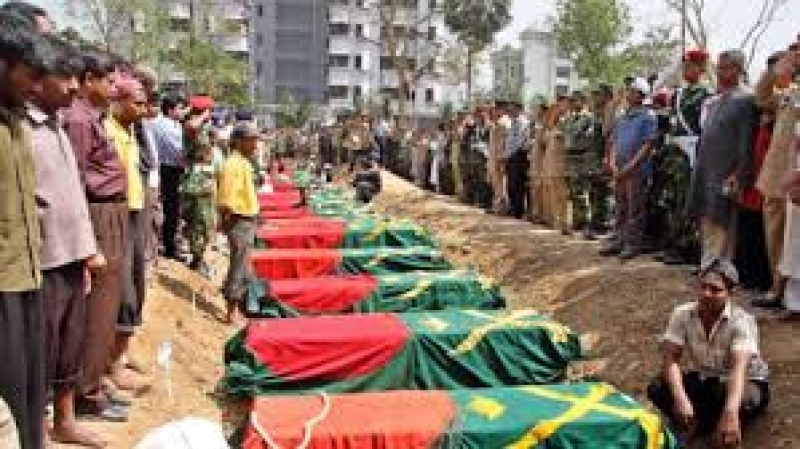- Miscreants Launch Attack on Air Force Base in Cox's Bazar: ISPR |
- Munshiganj General Hospital catches fire; no injury reported |
- Dhaka’s air records ‘unhealthy’ on Monday morning |
- Dhaka seeks global pressure on Myanmar for lasting peace |
- BSEC Chairman’s resignation urged to stabilise stock market |
Reinvestigation to Uncover Truth Behind 2009 BDR Carnage: Rahman

The National Independent Investigation Commission is conducting a thorough and organized reinvestigation to uncover the truth behind the tragic 2009 Bangladesh Rifles (BDR) mutiny at Pilkhana, according to Chairman, retired Major General ALM Fazlur Rahman.
“This is a complex task, as the event took place 16 years ago, but the commission is working with a well-structured approach to uncover the truth,” Rahman said.
The former general, who had previously led the paramilitary force responsible for securing the country’s border, explained that the commission was focusing on five critical aspects of the bloody mutiny that occurred on February 25 and 26, 2009, resulting in the deaths of 74 people, including 57 military officers deputed to the BDR. The mutiny remains one of the most devastating events in the country's history.
Rahman outlined that the commission's priorities include investigating the true nature of the incident, identifying the perpetrators, accomplices, conspirators, and those who destroyed evidence. The investigation is also looking into the roles of individuals who may have instigated the violence.
The commission is also examining both domestic and foreign factors that may have played a part in the massacre, as well as determining those responsible for failing to prevent the tragedy.
“The commission has been given a mandate to complete its task within 90 working days, and so far, we have recorded the testimonies of 37 individuals over the course of 41 working days,” Rahman said.
Among the individuals who have already testified are three lieutenant generals, two major generals, five brigadier generals, four colonels, four lieutenant colonels, seven majors, two captains, seven BDR soldiers, and three family members of the victims.
Established on December 24 last year, the commission includes former military and civil officers, as well as public university professors. Rahman expressed confidence that the investigation will be completed within the prescribed time, though it may require additional time if necessary.
Following the mutiny, the BDR underwent significant restructuring, and was rebranded as the Border Guard Bangladesh (BGB), with a new uniform and logo. Many former BDR personnel were tried under the Penal Code in special courts, while those who committed lesser offenses were tried in BDR courts.
Rahman revealed that the commission has reached out to both the then Prime Minister Sheikh Hasina and former Army Chief, retired General Moeen U Ahmed, to gather their perspectives. Letters have also been sent to the Ministry of Foreign Affairs to connect with foreign embassies regarding individuals currently residing abroad who may have crucial information.
“We need to hear from General Moeen Uddin Ahmed to understand why the operation failed and why so many lives, including those of military officers, were lost,” Rahman explained.
While acknowledging the challenges of reaching out to these individuals, Rahman emphasized the importance of hearing from them as part of the ongoing investigation. He also mentioned that the commission has requested the government to impose travel restrictions on certain individuals to ensure their availability for questioning.
Regarding the previous investigations into the carnage, Rahman confirmed that the commission has received reports from the committees led by retired Lieutenant General Md Jahangir Alam Chowdhury and former secretary Anisuzzaman.
When asked about contacting former BDR personnel recently released from jail, Rahman clarified that the commission would not proactively approach them. However, he noted that ex-BDR members could reach out to the commission voluntarily, either directly or through their official website, https://www.bdr-commission.org.

